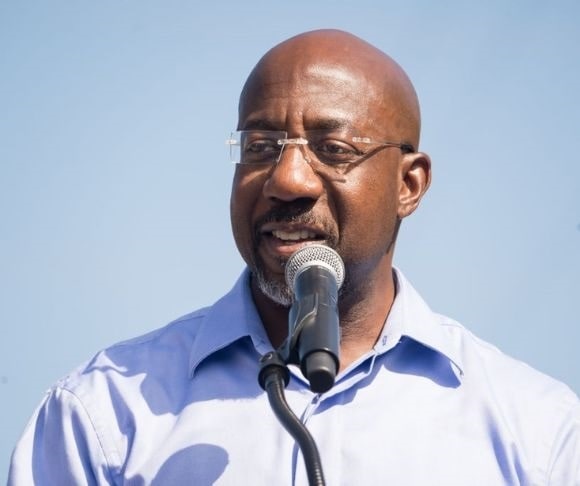Congressional Republicans most certainly have Georgia on their minds with the midterm elections almost upon them, as they should. Their quest to unseat Raphael Warnock, one of the Peach State’s two Democrat senators, could well determine which party controls the upper chamber, come January. They may have to deal with the curse of the Georgia runoff election, however, that stung them twice in 2020. The race between Warnock and Republican challenger Herschel Walker is shaping up to be close enough to trigger a final showdown some four weeks after the midterms. Why? Well, because that’s how things are done in Georgia – which begs a repeat of the question, why?
The Curse of the Georgia Runoff
 Georgia is one of only two states that hold runoffs to determine the winners of elections (as opposed to primaries) – Louisiana being the other. The rule says that to win the election outright, a candidate must receive an absolute majority of the votes; 50% plus one. All other states except Alaska and Maine, which use the seemingly bizarre ranked-choice voting system, demand that a candidate win a plurality – that is, more votes than any other contender.
Georgia is one of only two states that hold runoffs to determine the winners of elections (as opposed to primaries) – Louisiana being the other. The rule says that to win the election outright, a candidate must receive an absolute majority of the votes; 50% plus one. All other states except Alaska and Maine, which use the seemingly bizarre ranked-choice voting system, demand that a candidate win a plurality – that is, more votes than any other contender.
Historically, Democrats have not benefitted from Georgia’s runoff mechanism, introduced in the 1960s. In fact, before 2020 they had not won a statewide election since 2006. Runoff elections have claimed several Democrat scalps, over the years, including incumbent Sen. Wyche Fowler’s shocking, though narrow, 1992 loss to Republican Paul Coverdell. Even in 2008, when Democrats picked up eight Senate seats and prevented Georgia Republican Sen. Saxby Chambliss from passing the 50% mark, they were unable to lift their own curse of the Georgia runoff. Chambliss resoundingly defeated his Democrat challenger in the second round of voting.
Somehow, though, the tides of fortune turned in 2020. Incumbent Republican Sen. Kelly Loeffler was forced into a Jan. 2021 runoff with Warnock in the special election to see who would serve out the remaining two years of Johnny Isakson’s term. Isakson, a Republican, resigned for health reasons in 2019 and Loeffler was appointed to replace him until the special election. Warnock prevailed in the runoff with 51% of the vote to Loeffler’s 49%.
David Perdue (R), the other Republican incumbent, narrowly failed to win more than 50% of the votes for his seat in 2020, though at one point he was over the threshold. Perdue fell to Democrat Jon Ossoff in another Jan. 2021 runoff. Republicans were stunned as Democrats swept the Senate races in what was a deep red state.
Should a Georgia runoff be required, it is held four weeks after the election between the two candidates who won the most votes in the election proper. Harold Wilson, who served as British prime minister twice in the 1960s and 1970s, is credited with saying, “a week is a long time in politics.” An awful lot can change in four weeks, then. It’s almost as if a candidate who placed second in the original election could retool their entire strategy to gain the upper hand by the time the runoff comes around. Had there been no majority vote system in Georgia, Warnock would still have ousted Loeffler, and Perdue would have held onto his seat. Republicans could have celebrated a razor-thin 51-49 majority in the Senate.
The State That Can’t be Understated

Raphael Warnock (Photo by Megan Varner/Getty Images)
Georgia has been a top target for Democrats with one eye on the Electoral College they would dearly love to scrap. The southern state’s 16 Electoral College votes are a big prize. If Democrats even managed to change Georgia from red to purple, every future Republican presidential candidate would be faced with a Herculean task. That lesson was rammed home in 2020 when, against all odds, Joe Biden scored the slimmest of victories over then-President Donald Trump in Georgia and the Democrats swiped both Senate seats. It is no mere coincidence that Stacey Abrams (D) is so determined to become Georgia’s governor. So important is the state that, for her, the office would generate massive returns in both political influence and fundraising power.
It is also, then, not by chance that Democrats are throwing everything but the White House kitchen sink at Herschel Walker. Regardless of what happens in any of the other 49 states in November, they have no intention of letting Raphael Warnock’s seat slip from their grasp. Peach State voters are none too impressed by either the incumbent or his challenger, by some accounts, and so the curse of the Georgia runoff might yet determine control of the Senate for the vital two-year duration of the 118th Congress.




